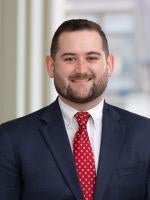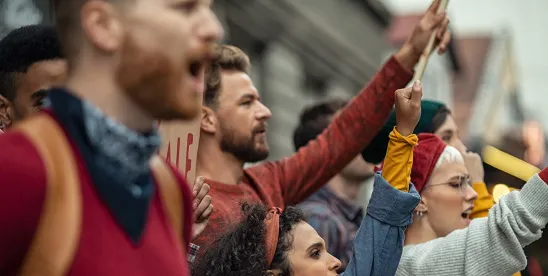he recent news of campus protests has sparked numerous questions related to protected civil liberties and rights. In the wake of such debate, another interesting set of questions has arisen: Are these protests protected activity under the National Labor Relations Act (NLRA)? And do colleges and universities need to be mindful of federal labor law in response?
In order to perhaps glean answers to these questions, two unions, the Graduate Labor Organization and United Auto Workers (Local 872), which represent graduate students at Brown University and the University of Southern California (USC), respectively, filed unfair labor practice charges against each institution. Both organizations claim each institution violated the rights of graduate students, who were also employees, in their response to campus protests.
At Brown, for example, the charge claims the university unilaterally changed policies; illegally threatened and surveilled workers who protested the changes; and violated workers' Weingarten rights, when they refused to allow union representatives to be present during disciplinary hearings.
The NLRA only applies to private employers, thus limiting its protections only to employees at private universities, like Brown and USC. In a landmark 1980 decision, NLRB v. Yeshiva University, the U.S. Supreme Court further narrowed the protections of the act to non-tenure track employees, including graduate students, unless the institution otherwise agreed to recognize the bargaining unit or the tenured track faculty members do not hold “managerial authority.” For employees at public universities, the rules vary greatly. Collective bargaining rights are protected by state law for academic professionals in 34 states.
Whether these actions in response to campus protest are violations of the NLRA will turn on one thing – did they concern and infringe upon protected concerted activity?
NLRB General Counsel Jennifer Abruzzo has claimed that protests involving issues of civil rights in the workplace are protected, noting such topics to be “inherently concerted” and protected. The NLRB has entertained these arguments from Abruzzo, but has yet to endorse them. It most recently refused to do so in its Home Depot decision, which concerned an employee's display of BLM insignia in the workplace.
Whether these student workers can establish a nexus between the protest responses and the terms and conditions of their employment will be the critical first piece, but not the only one, in determining whether an unfair labor practice has been committed. Questions on the scope of the conduct at issue, employer management and property rights, academic freedom, and the subjects of bargaining in the higher education setting swirl around these issues.
Indeed, even if protected, individual determinations about whether certain individuals' conduct removes them from the protection of the NLRA will certainly be required. At a time when the board has never been more pro-union or pro-employee, nor afraid to make major precedent-shifting changes (especially in the higher education arena, where the recent Dartmouth decision allowed student athletes to unionize), these groups might be paving the way for even more to come.




 />i
/>i

